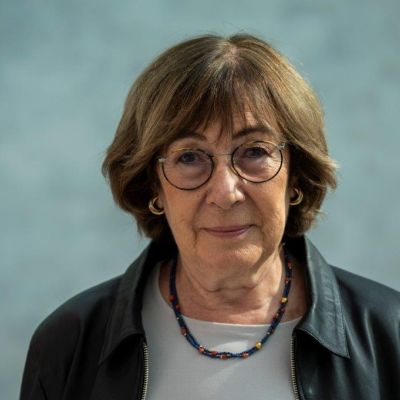Against oblivion: Maria and Raquel have been best friends since childhood. In 1976 the Argentine military seizes power and Maria's eldest son is kidnapped by the military junta. Raquel supports her friend’s search for her son before, feeling increasingly threatened, she heads into exile. Meanwhile, Maria’s fight for justice is only just beginning.
"Tell me where my children are!" shouts a group of protesting women who have gathered near the government building in Buenos Aires. Maria is one of them. During the military dictatorship in Argentina, the Mothers of the Plaza de Mayo became a symbol of political resistance. They demanded answers regarding the fates of their children, all of whom had disappeared without a trace; they shared the same anger and the same pain. The film is based on these events and gives a voice to these most courageous of women. In doing so, the director exemplifies the need for a collective coming to terms with her country's past whilst taking a stand against forgetting. At the same time, Jeanine Meerapfel tells the very personal stories of two very different women against a backdrop of political upheavals and, in the midst of this tale of a collective uprising, explores how individuals differ in their handling of extreme situations.
Jeanine Meerapfel welcomes you to the screening of her film La Amiga on 15.6 at 15.00 at the Delphi Lux and tells you something about her film in advance.
Credits
original title La Amiga
international title La Amiga
german title La Amiga
JFBB section Hommage: Jeanine Meerapfel
country/countries DE/AR
year 1988
duration 109 Min
Jeanine Meerapfel
BIO In her works, director Jeanine Meerapfel not only deals with her own German-Argentinean family biography, but also finds a language through her films with which she gives expression to feelings of un-/belonging and questions about her own identity and origins. She was born in 1943 as the daughter of German-Jewish emigrants in the Argentine capital Buenos Aires. After completing her studies in journalism, she came to Germany in 1964. She studied at the Institute for Film Design ("Institut für Filmgestaltung") in Ulm, among others with Alexander Kluge, who is still one of the most influential representatives of New German Cinema.
Against the backdrop of current political and social debates, Jeanine Meerapfel's films are still highly topical today: themes such as migration, experiences of flight and exile find their way into her films, as does the critical examination of the acute dangers of anti-Semitism and xenophobia.





